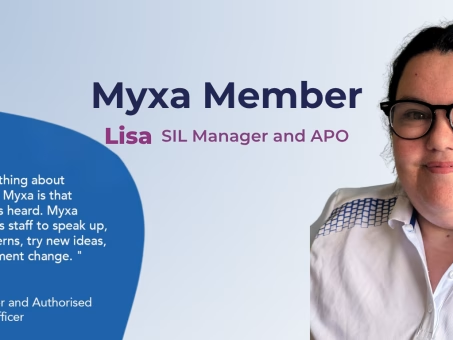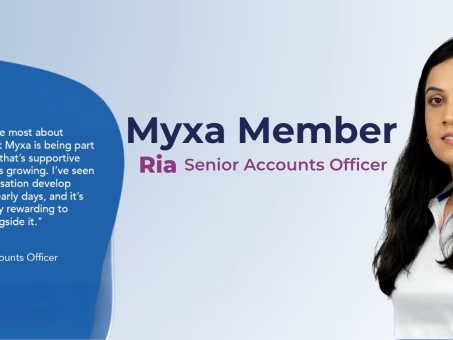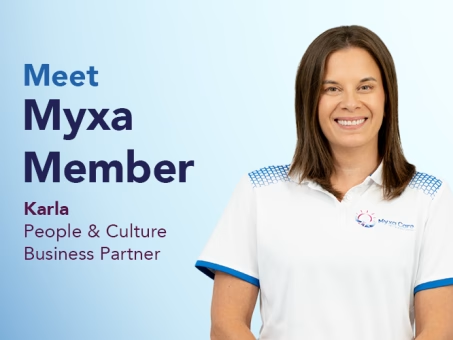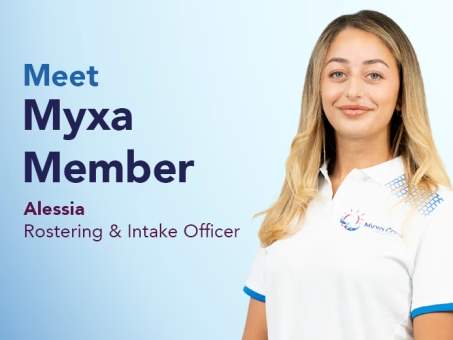


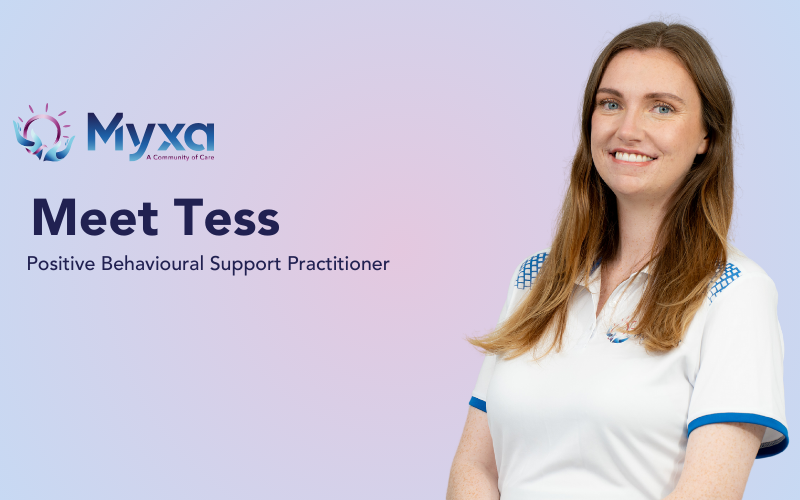
Tess: I started my journey in disability support through volunteering at an after-school program supporting children with disabilities while I was in high school. I then completed a traineeship in my gap year where I worked with children with disabilities and obtained my Certificate IV in Disability. After this, I started working as a Disability Support Worker (DSW) with adults who had an intellectual disability and were living out of home.
While working as a DSW, I completed a Bachelor of Social Work. Balancing work and study was pretty manageable, as a lot of the theories and knowledge we’re taught in social work are very aligned with the values and goals of behavioural support. The 1,000 hours of placement was tricky to balance though!
I took a very short break when I graduated university and entered another system working in case management, however, I found myself missing the behavioural support space and wanting to return to work within the NDIS scope.
Tess: It all stemmed from my experience as a DSW. I worked in a number of houses with several participants who had varying support needs, and I found myself frequently drawn to taking shifts in homes with adults who required behavioural support. Through working with these adults, I learned a lot about the importance of supporting people in a person-centred manner, understanding their triggers, and working out how to adapt my style of support to best work with them.
As much as this could be a tricky job at times, I got to see a lot of wins and spend time getting to know participants beyond their ‘risks’ and behaviours of concern. I also enjoyed working as a DSW in the behavioural support space as I got to work with the participant, allied health team and the other support workers to brainstorm strategies, trial different methods of support and use different resources to support and improve a participant’s quality of life and help them achieve their goals.
Now that I’m a PBS practitioner, I feel like I get a perfect mix of what I loved doing as a DSW and what drew me to being a social worker. I get to work with the participant directly to improve their quality of life, and I also get to work within their system (support workers, care team, family) to find ways they can also support the participant to improve their quality of life.
Tess: From a practice point of view – Myxa’s genuine commitment to person-centered care. I love being apart of not just a PBS team, but an organisation that genuinely prioritises participants individual support needs. As a practitioner, it makes supporting people with very unique and specific behavioural support needs far more manageable. There’s an assessment, resource, tool or person who can provide guidance with every challenge I’m having in my practice, and this provides participants with a far more positive and effective service from me that is more likely to meet their needs and improve their quality of life.
From an employee point of view – the culture of support, teamwork and equality both within the PBS team and throughout the organisation. I feel really safe to ask for help and clarity from colleagues, management and other departments, as I feel we are all highly valued wherever we sit in the hierarchy and recognised for our individual strengths. Everyone is incredibly generous and happy to help each other out, as well as super friendly and approachable – I regularly get to connect with people from other departments that aren’t necessarily directly linked to the PBS team. I feel we have a very genuine culture of connection amongst the staff, and when we spend time together, it’s always really fun and I leave feeling really lucky to be apart of such an awesome organisation.
Tess: It’s super hard to pick just one. I’ve had a lot of highlights and a lot of “hindsight is 20/20” moments. I think it’s equally important to experience and value both so you can learn from what went well and what you could’ve approached differently.
Something I’ve really loved about working in behavioural support as both a DSW and PBS practitioner is the “ah ha!” moments. There are so many tiny nuances and changes in people’s behaviour, and sometimes when you identify these and where/why/how they occurred, it can completely change the direction of support and open up a whole new way of supporting someone with a behaviour of concern. Sometimes it can lead to “success”, other times it can be a dead end, but irrespective, I love being able to trial and error with participants and their support network as it means we are getting closer to the approach that suits that participant best.

